Children and the elderly in Jharkhand March for Forest and Land Rights
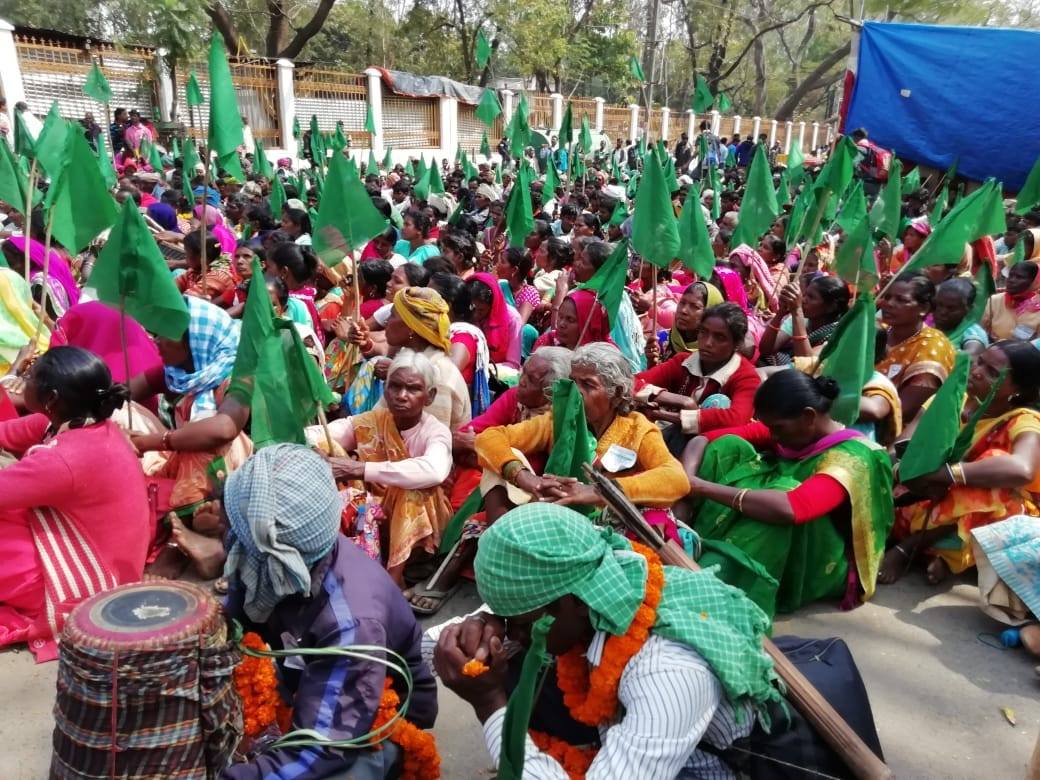
Nikhat Fatima, TwoCircles.net
Close to 10000 people including children, men, women and even senior citizens of tribal communities from 20 districts of Jharkhand came together to March for their right to the Forests and land. The march, also called ‘Paidal march’ ( Marching on foot) began from 20th February from Columbus ground at Hazaribagh and concluded at Ranchi on 27th February covering 110 kilometres.
Their demands are simple – they want full rights to the land, water and other resources of the forests from which they are being systematically alienated.
https://youtu.be/k1jdgBxxGOo
Earlier it was the British who exploited the forest dwellers and after Independence, the Indian Forest Act ignored their rights depriving them the usage of the forest and its resources which they had always access to and which belonged to them since time immemorial.
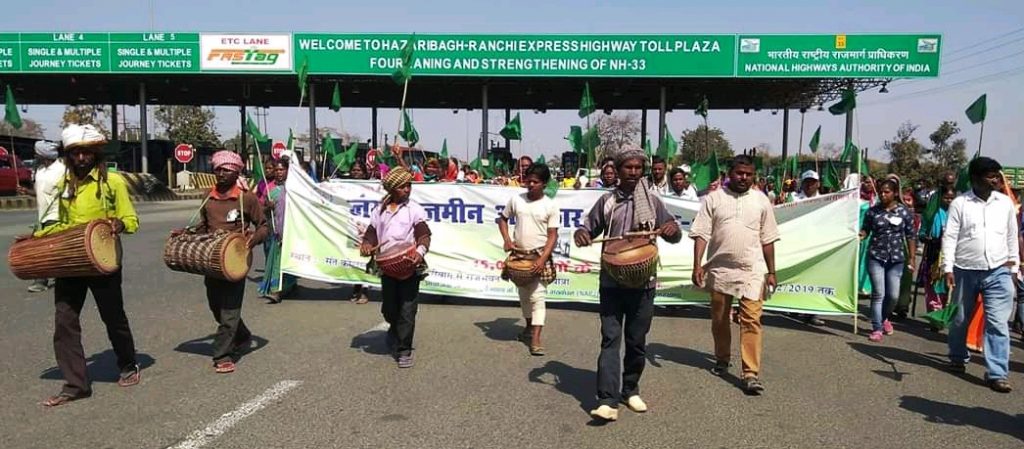
However, later the Government of India recognised the injustice done to the forest dwellers and brought the "Schedule Tribe and Other Traditional Forest Dweller Forest Rights Act, 2006". This act provides for the strengthening of the local government/Gram Sabha for the management and governance of forests within the traditional boundaries of a village and for the protection of forests, forest life, and biodiversity.
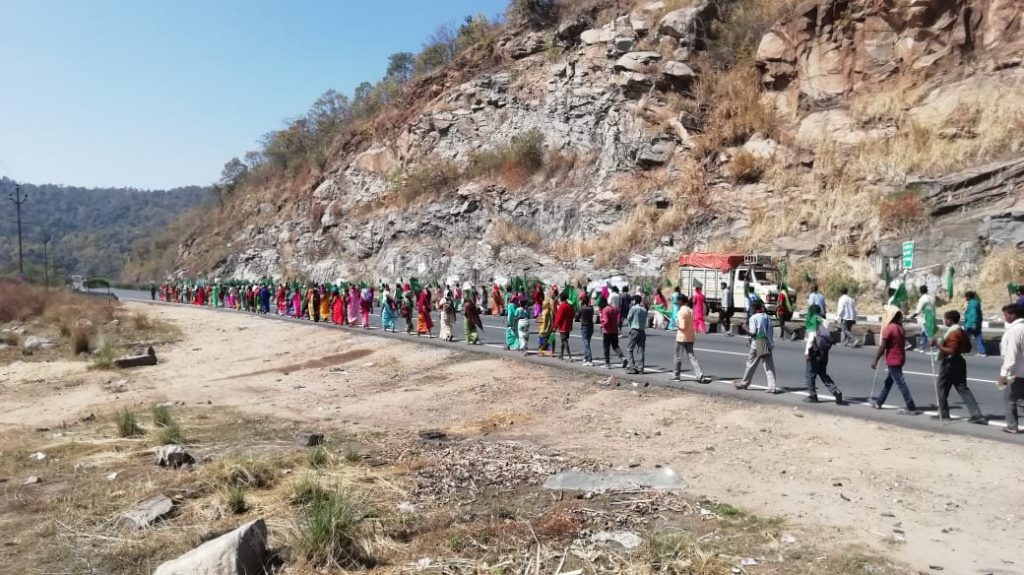
Similarly, schedule V of the Indian constitution recognized the need for protection and special administration of areas predominantly inhabited by tribal/ Adivasi people due to their cultural uniqueness, vulnerability to external exploitation. The most important right provided under this schedule is the prevention of land alienation through land transfer regulation where no land or immovable property in these areas can be transferred by way of sale or lease to persons other than the tribals.
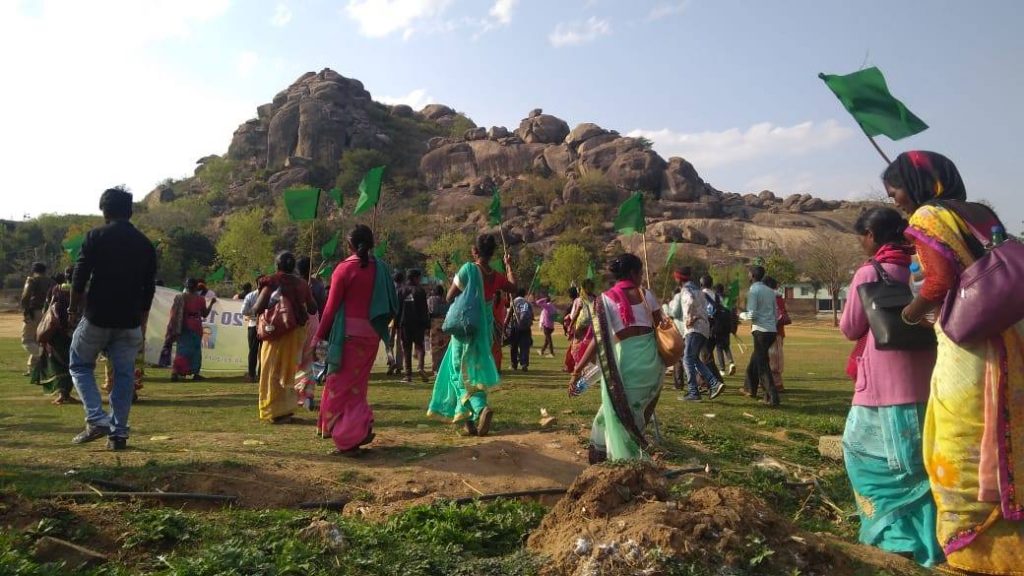
But no serious efforts were made to empower the forest dwellers instead they were displaced and exploited. By selling major chunks of the land to corporates the state government violated the provisions of the constitution.
In Jharkhand, over the years thousands of people have been displaced and denied their right to the forest. The government has sold forest lands to the rich corporates who razed agricultural fields to start projects like coal mining, stone quarry, dams, factories and other projects in the name of development. The Government's initiatives like Tiger Project, Wildlife corridor have also displaced many people and the others who have not been displaced are living in constant fear.
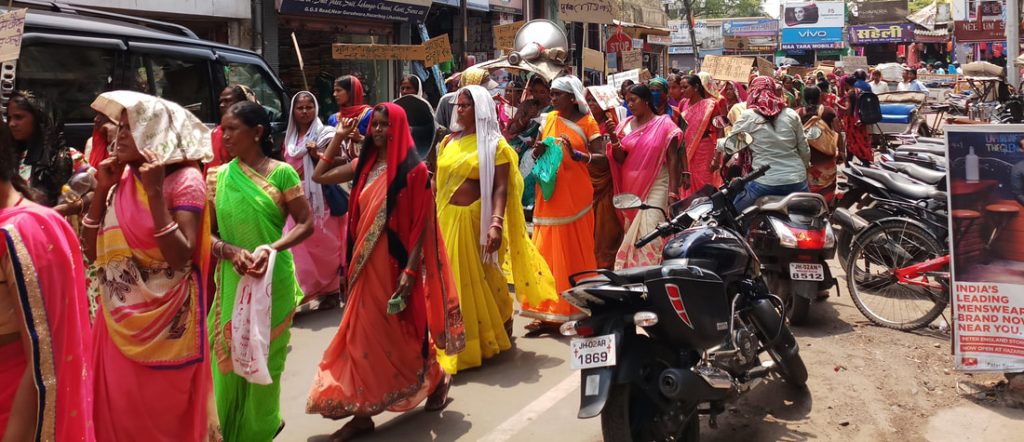
Various tactics are used time and again to drive the tribals from their land and displace them.
In Jharkhand, there are demands for both granting of both IFR (Individual Forest Rights) and CFR( Community Forest Rights).
One of the tribal women from Hazaribagh says, " Our forefathers have struggled to preserve the land and the forest resources. But now the government refuses to give us that very land instead they have added that land to the land bank. Our demand is that we are given rights to the land."
https://youtu.be/P7DOPwRt0GQ
In Jharkhand, there are 16452 villages with 1994387 hectares of their land covered by forests. So the villagers can be granted the forest rights as a community and 14 lakh individuals are eligible for the individual forest rights.
The National Alliance for peace and justice (NAPJ) organised the 8 days March to help Adivasis in Jharkhand state reclaim the forests, the rivers, the creeks, the trees, the sand, and the farms.
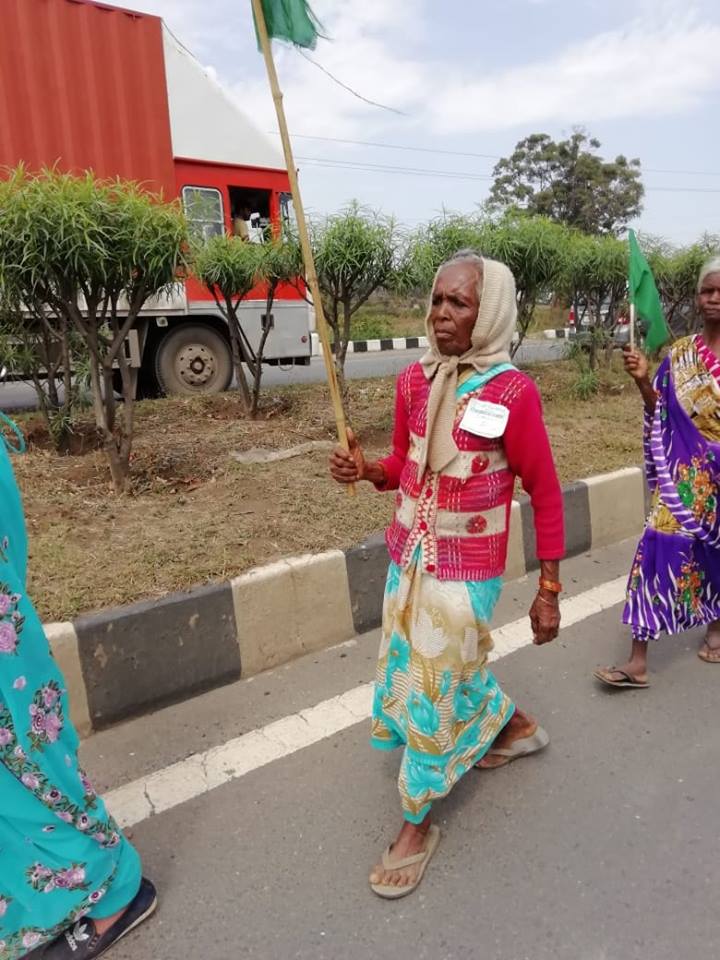 A day after the March began the Supreme Court ordered the eviction of the forest dwellers so in their charter of demands the organisers were prompt to add demand the state to file a petition against the order.
The other demands are:
• withdrawal of minor civil and criminal cases against the forest dwellers,
• a dedicated scheduled tribe department to be formed to focus on welfare and rights of the tribal population;
• Land acquisition act 2013 should be enforced and Land Acquisition Act 217 should be repealed;
• A state-level Joint committee should be formed for execution of Forest Right Act. 2006.
• The Chotanagpur Tenancy (CNT) Act, and Santal Pargana Tenancy (SPT)Act should be strictly implemented.
• The common land, the grazing land, the forests, the rivers, rivulets, streams, the trees, farming land everything that has been added in the Land Bank should be freed and not given to capitalists.
A day after the March began the Supreme Court ordered the eviction of the forest dwellers so in their charter of demands the organisers were prompt to add demand the state to file a petition against the order.
The other demands are:
• withdrawal of minor civil and criminal cases against the forest dwellers,
• a dedicated scheduled tribe department to be formed to focus on welfare and rights of the tribal population;
• Land acquisition act 2013 should be enforced and Land Acquisition Act 217 should be repealed;
• A state-level Joint committee should be formed for execution of Forest Right Act. 2006.
• The Chotanagpur Tenancy (CNT) Act, and Santal Pargana Tenancy (SPT)Act should be strictly implemented.
• The common land, the grazing land, the forests, the rivers, rivulets, streams, the trees, farming land everything that has been added in the Land Bank should be freed and not given to capitalists.
Another participant ( audio recorded during the March) says, " We want back our rights to the forest and the forest produce such as the fruits, medicines, wood and other produce"
https://youtu.be/aIRdiEESNM8
Another tribal person, Birendra Kumar says " It is 12 years since the Forest rights act has been passed but still not being implemented properly. There are more than 32000 villages in Jharkhand and everyone has their land and their names recorded. But still what happens is the bullying of the police and the Government. In one of our villages, the NTPC (National Thermal Power Corporation) has forcefully taken over 25000 acres of land. And in another village in Santhal Pragana, where the people were agitating, the police has put them behind bars under false allegations. It appears like the state and the law are in favour of the rich and our voices are not heard. The Government is not concerned about the forests and the forest dwellers. "
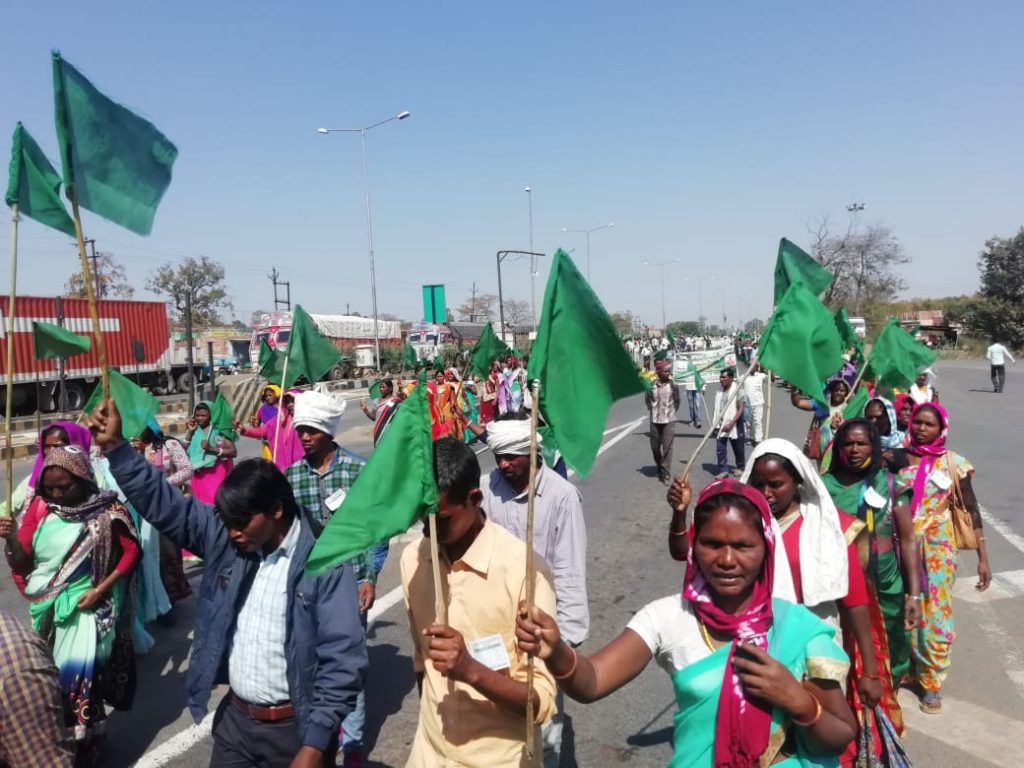
" And now the Supreme Court has said that those whose claims have been rejected should be evicted from the forests. Where will they go? There must be lakhs of people in the entire country whose claims have been rejected."
Now that the Supreme Court has stayed the order of eviction of forest dwellers, the tribals can heave a sigh of relief. "But", says Shafiq ur Rehman Khan, one of the organisers from NAPJ to Twocircles.net, " the Supreme Court order for eviction came in the wake of some corporate NGOs and other NGOs funded by corporates, filing a petition. The corporate sector is anti-ecology and anti-forest dwellers".
[caption id="attachment_429790" align="alignnone" width="640"]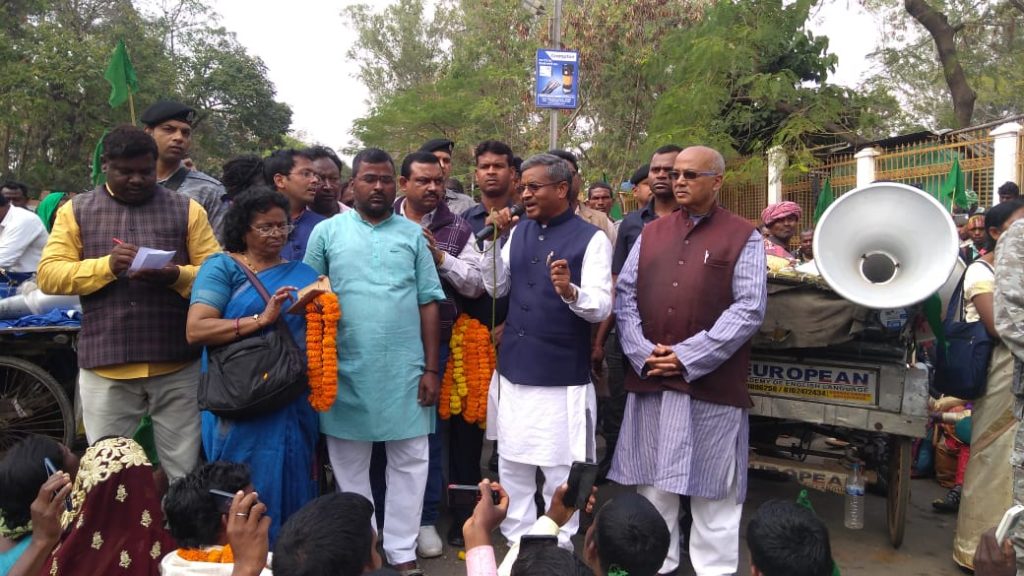 Ex and also the 1st chief Minister of Jharkhand Babulal Marandi expressing his solidarity to the March on the last day[/caption]
Ex and also the 1st chief Minister of Jharkhand Babulal Marandi expressing his solidarity to the March on the last day[/caption]
He also adds that the state wants to institutionalise the forests – construct parks and reserves. But we want the forests to be left as it is – wild and free.
"The Government does not even have any record of the people who have been displaced from the last 20 years. And this is one of our concerns. Ideally, each state government should prepare a status report on tribals once a year and submit to the central government but this is not in practice. There is no data with any of the states."
[caption id="attachment_429793" align="alignnone" width="858"]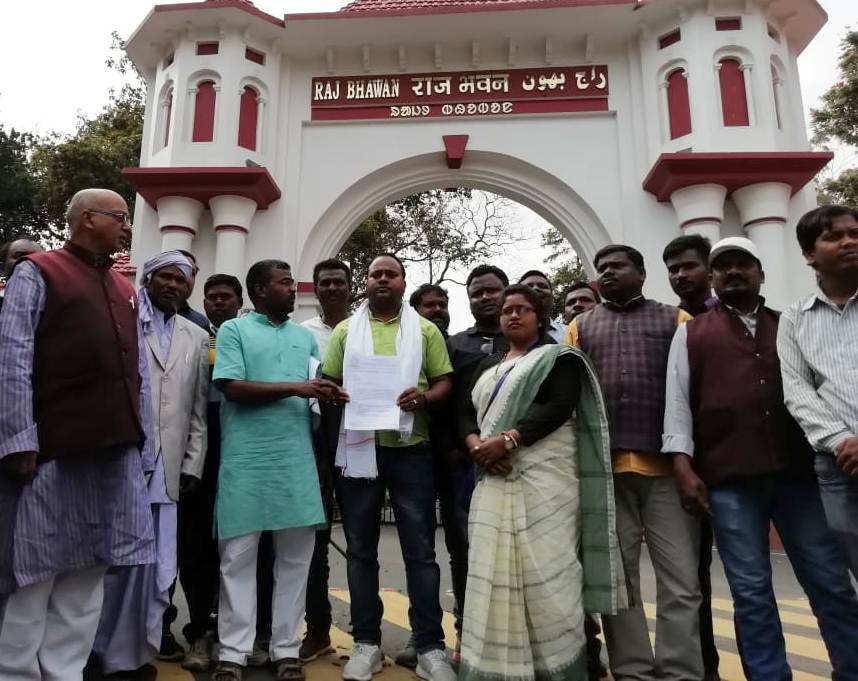 Ex MLA Gautam Sagar Rana and other leaders in front of the Raj Bhavan[/caption]
Ex MLA Gautam Sagar Rana and other leaders in front of the Raj Bhavan[/caption]
On 28th February a group of 5 Adivasis accompanied by Ex-MLA Gautam Sagar Rana met the Governor Draupadi Murmu and submitted their memorandum of demands. The governor who is a tribal herself assured that she will take up the matter with the Central Government and at the state level also she said she will talk to the Forest Minister.
The people are hopeful that the Governor will support their demands. If not, the National alliance for Peace and Justice say they will continue with their protests in their own blocks.
